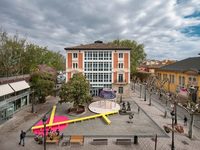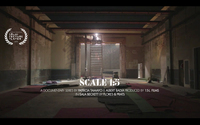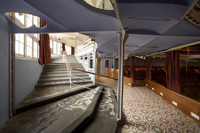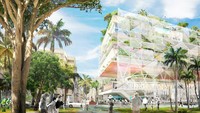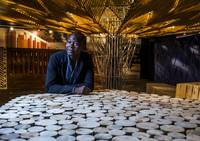Two Cork Houses
These two houses are built on a plot of land densely populated by tall, slender pines, young cork trees, and holm oaks in a part of the Costa Brava where cork was formerly produced. From the access road the plot ascends sharply and has a newly created basin of water at the very top of it. Located halfway between the road and the basin, the houses form an outdoor space of arrival and encounter for the three generations of the family who live in this complex.
The houses, compact and vertical, emerge from an uneven terrain in which an attempt has been made to intervene as little as possible in the natural topography of the land—by dispensing with walls, paved terraces and underground garages—while committing to conservation of the existing vegetation, enhancing it with new plantings of Mediterranean varieties of underbrush. In this way the environment is preserved and the impression given of a place that has hardly changed after the intervention.
The structures in the base of the houses are of concrete, and in the remaining parts of cross-laminated timber; both dwellings are clad on the outside in two layers of insulating cork. Inside, the structural wood is left exposed as is, resulting in a welcoming atmosphere that is closer to the surrounding woodland than to the sea five hundred meters away.
Intimate in scale, the indoor spaces are linked to one another without the need for passageways in a sequence of rooms of varying size, their uses being defined by their relationship to the outside, be it the distant view of the sea, the vision of the tops of the pines or the direct access to the terrain. The shade from the pines protects the windows from the sun.
The larger of the two houses forms the setting for most of the family encounters. The main floor is extended via a freestanding canopy which gives shape to two ample overlapping terraces with views of the sea and the coastal mountain range of Les Gavarres. The canopy of sandblasted concrete is a structure that is independent of the house and its terraces are literally suspended among the pines.
Ceramic tiles are custom-made by Ceràmica Cumella. Both houses obtained a Class A energy rating.
- Architects
- Emiliano López Monica Rivera Arquitectos
- Year
- 2016
Related Projects
Magazine
-
-
-
-
Un despatx madrileny signa un visionari catalitzador urbà en West Palm Beach
Andrea Pala | 29.11.2018 -
L'arquitectura de Francis Keré en escena en el Museu ICO de Madrid
Andrea Pala | 28.10.2018








